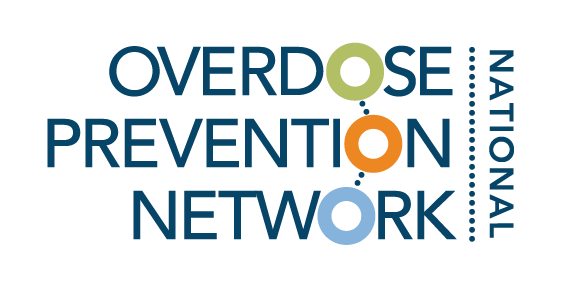
Resource Library
Toolkits, guides, and other resources vetted by experts in overdose prevention.
Filter by category and tags, or search by keyword (ex. COVID-19, harm reduction).
Substance Use Disorder (SUD) Prevention 101: Key Concepts in Prevention
The Center for Applied Research Solutions created this presention on key concepts in prevention of substance use disorders. This presentation covers the 6 major prevention strategies that it has developed that cover the following topics for you to apply in your overdose prevention work: information dissemination, education, alternatives, problem ID and referral, community based-processes, and environmental prevention strategies.
Focus on Prevention: Strategies and Programs to Prevent Substance Use
The U.S. Department of Health and Human Services(HHS), Substance Abuse and Mental Health Services Administration (SAMHSA), has developed this guide as a starting point to help a wide range of groups and communities move from concerns about substance use to proven and practical solutions. This guide offers brief, easy-to-read information that organizations can use to plan and deliver prevention strategies in a wide array of settings, through a variety of methods.
SAMHSA Youth Substance Use Prevention Month and Substance Misuse Prevention Month Toolkit
In the month of October, we focus on youth substance use prevention and substance misuse prevention. 2023 marks the 10th anniversary of the "Talk.They Hear You." campaign. Prevention efforts enhance protective factors and minimize risks in individuals, families, schools, communities, and society at large. Extensive research and community-based experiences over the years affirm the effectiveness of prevention strategies, see the toolkit for more information, campaign materials, and more.
Supporting Telehealth and Technology-assisted Services for People Who Use Drugs: A Resource Guide
This resource guide created by the National Council for Mental Wellbeing (National Council) aims to help harm reduction organizations, SUD treatment providers and other organizations that serve PWUD overcome challenges associated with implementing telehealth and technology-assisted services and leverage these advances to help improve the health and wellness of PWUD.
Getting Candid: Framing the Conversation Around Youth Substance Use Prevention
The National Council for Mental Wellbeing (National Council) created this guide with the purpose of equipping providers with substance use prevention messaging and share guidance on how to effectively deploy this messaging with middle and high school age youth.
Fostering Resilience and Recovery: A Change Package
To better address trauma in primary care, Kaiser Permanente and the National Council for Mental Wellbeing (National Council) launched the Trauma-Informed Care Primary Care: Fostering Resilience and Recovery initiative to develop, test, disseminate and scale a field-informed Change Package. Implementing trauma-informed approaches within primary care marks a fundamental shift in care delivery that supports improved utilization of services, improved patient outcomes, increased staff satisfaction and healthier work environments.
Self-Care Strategies Worksheet
This worksheet was developed by Cypress Resilience Project in partnership with PHI Center for Health Leadership and Impact for the Spring 2022 COPN Convening, which focused on toxic stress and burnout for individuals working in substance use and overdose prevention.
SAMHSA Resources for Lesbian, Gay, Bisexual, Transgender, Queer, and Intersex (LGBTQI+)
SAMHSA compiled a list of resources for individuals and providers that includes national survey reports, agency and federal initiatives, and related behavioral health resources.
Fentanyl is Forever Campaign
This campaign was created by the Santa Barbara County Department of Behavioral Wellness. It is an example of how a community has developed an awareness campaign discussing fentanyl, how to access naloxone and how and where to find local treatment options.
Harm Reduction Hacks Microsite
Harm Reduction Hacks is a comprehensive microsite and resource to guide organizations developing new and/or with existing syringe services programs (SSPs) in program design, implementation, and organizational sustainability. This resource was developed through the CDC-funded National Harm Reduction Technical Assistance Center.
Wellbeing Wednesdays - Episode 7: "Advancing Health Equity"
Hear Rochelle P. Walensky, M.D., MPH, director of the Centers for Disease Control and Prevention (CDC), and Chuck Ingoglia, the National Council’s president and CEO, discuss the state of health equity in America, barriers to treatment, what equitable systems of care look like and more.
Trauma and Mass Incarceration
Philomena Kebec emphasizes the relationship between trauma and incarceration, specifically the lack of support given to those who have historically been oppressed.
Rescue Agency
There is no one-size-fits-all strategy to changing health behaviors. We approach every challenge through a data-driven lens, bringing together topic research and audience insights to develop tailored behavior change campaigns.
Mental Health First Aid
Mental Health First Aid is a skills-based training course that teaches participants about mental health and substance-use issues. Learn more about it here.
Tools for Overdose Prevention
Overdose death in the United States has increased at an alarming rate since the onset of the COVID-19 pandemic with an increase of 30% in 2020 compared to 2019. To help public health practitioners prevent overdose, the National Council for Mental Wellbeing and the CDC developed these resources and tools.
988: Reimagining Crisis Response
In 2020, the nation took a significant step forward with the enactment of the National Suicide Hotline Designation Act, a bill NAMI advocated for that created a nationwide three-digit number (988) to assist people experiencing a mental health or suicidal crisis. This fact sheet delves deeper into the purpose of the 988 line, and what it hopes to achieve.
988 Suicide & Crisis Lifeline
The new 988 mental health hotline is a way of providing 24/7, free and confidential support to people in suicidal crisis or emotional distress. This fact sheet from SAMHSA answers some FAQs relating to the implementation and sustainability of the 988 line.
Why Partner with Behavioral Health?
Trauma expert Brooke Briggance describes the strong relationship between behavioral health and overdose prevention, encouraging us to integrate services to combat substance use disorder.
Cypress Resilience Project
The purpose of this project is to support the inherent resilience of individuals and communities who are managing trauma, experiencing grief and navigating mental health challenges. This webpage offers resources and trainings on how to achieve this goal and implement these strategies into your own organization.
988 Suicide and Crisis Lifeline
The resources and information on this page are designed to help states, territories, tribes, mental health and substance use disorder professionals, and others looking for information on understanding the background, history, funding opportunities, and implementation resources for strengthening suicide prevention and mental health crisis services.
















